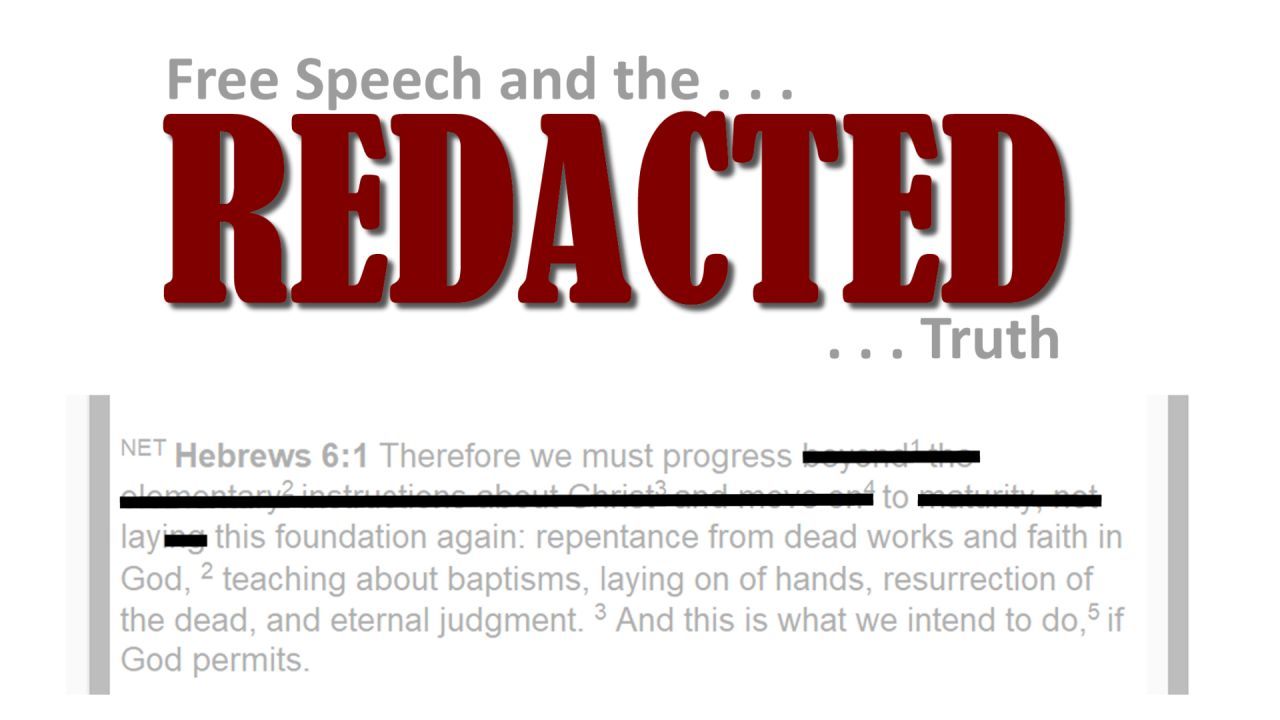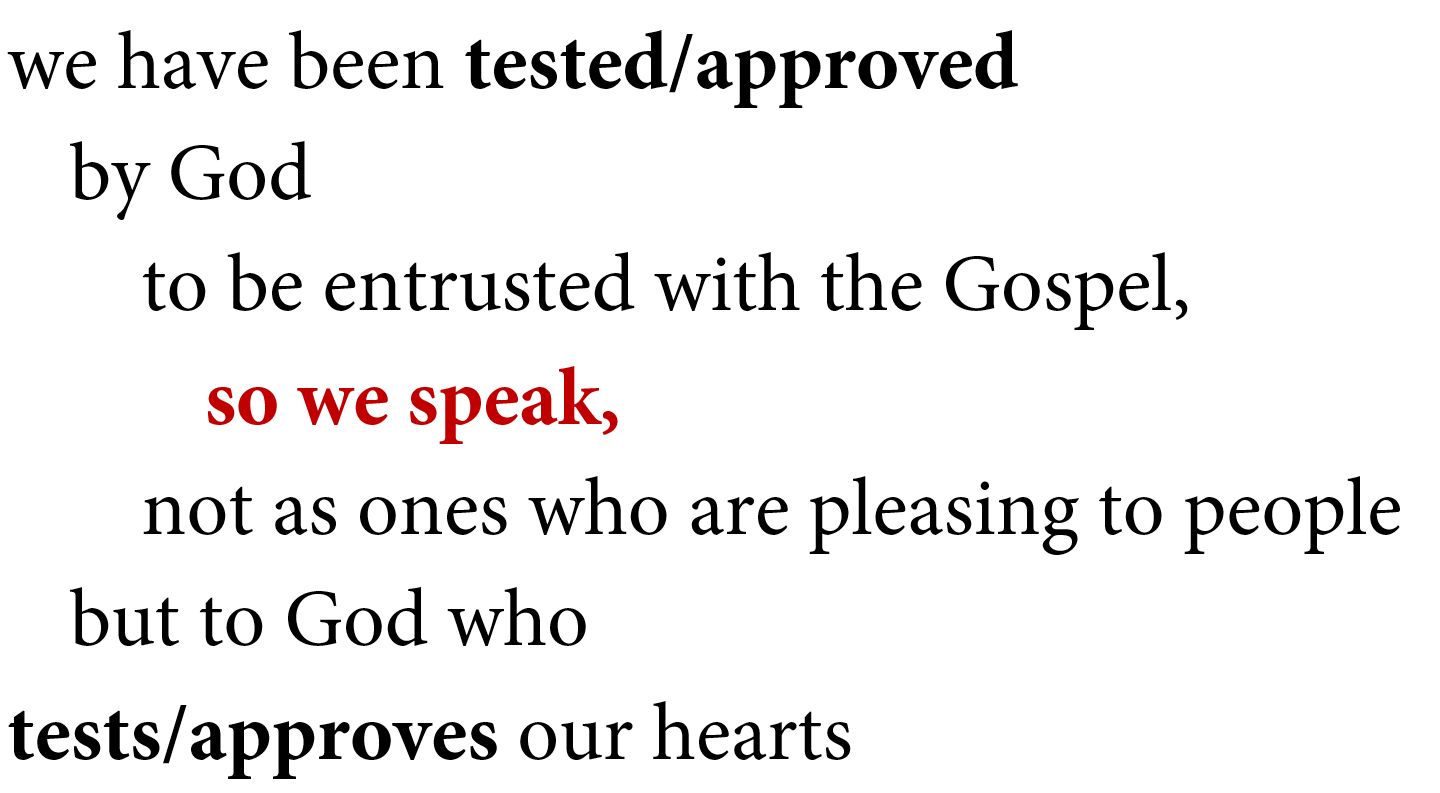
(1) Free Speech & Censorship
Jun 07, 2023Free speech. An important concept. Worthy of discussion. Of course to do that, some measure of it has to exist already.
Saying "I believe in the importance of freedom of speech," is like saying "I believe in the importance of a car": each can be used trivially for simple enjoyment; or more significantly, to bring into freedom someone held hostage; or more horrifically, as a terrorist weapon to run down innocent people, leaving behind destruction and mayhem.
Freedom of speech is an idea, not a virtue; it's a tool that can be used to help or hurt people. How it gets used is up to various societies, groups, and individuals.
Recently, funny man Rowan Atkinson (I admit to being a fan of his Johnny English series of movies) spoke to the subject. By showing the video, here, I'm not calling attention to whether he's a Christian or atheist, or to the fact the skit he refers to was based on real events. At the moment, I don't care about any of that. I'm only pointing to the ideas he expresses.
The skit he referred to follows (it is a bit crass at the end of the skit):
An incredibly huge and complex topic, freedom of speech is clearly under vigorous attack the world over.
But I want to focus on only one specific aspect of this: Christians, free speech, and the censorship practiced by Christians. During my lifetime, most of the Christians I have been around support the idea of free speech—at least when they are doing the talking. Some even claim or assume that free speech is a biblical principle and a God-given right—that is, until others challenge their view of the Bible or Jesus or God or some particular teachings they hold dear. At those times, interest in "free speech" tends to fly out the window.
Christians will say that free speech is truly free only when it is God speech. I understand the theory. I agree that free speech cannot stand alone as master over all other considerations. But let us be clear: Free speech is not a virtue; it is, rather, an idea and ideal that must be in constant conversation with great virtues like justice, faithfulness, mercy, and whether we have been entrusted by God to speak at all—as in 1Th 2:4, where Paul claims for himself:

Yes, Paul is speaking of himself. 1 But is he not an example for us? Is he not one in deep-level conversations with the great virtues of God found in the sacred writings? Are we not, now, to speak as one's entrusted with that Gospel? And are we not to be in deep conversation with the great virtues of God on which that Gospel is based? No? Yes?
But that is just the problem. Too often, when it comes to what we speak, Christians are not concerned about being in any real conversation with the great virtues. "We" are too busy being schizophrenic (double-minded) about shallow interests. As Americans (or Canadians or whatever nation), we insist on our right to speak out. But in our churches it is still very much the case that we look askance at those who don't believe or see things like we do. In effect (and sometimes in fact), we tell them simply to shut up. No freedom of speech or right to speak here; no evaluation of ideas; no engagement with heart and mind.
____________________________________________________
Free speech is not a virtue;
it is, rather, an idea and ideal
that must be in constant conversation
with great virtues like
justice, faithfulness, mercy, and
whether we have been entrusted by God
to speak at all!
____________________________________________________
Although there are many exceptions, Christians as a whole are not known for their willingness to engage in critical thinking (which freedom of speech depends on to be valuable). In fact and unfortunately, what they are known for is not even being willing to talk to each other at all, or to listen to anything other than what they already have made up their minds to believe. When it comes to issues considered doctrinal or sacred, they too often mistake an unwillingness to engage each other for "standing for the Truth," or closed-mindedness for "having the mind of Jesus or Paul" as though Jesus and Paul were milk-toast thinkers, only interested in the shallowest possible issues of the day. Christians often take this approach,
- despite Jesus' commandment: "love God with all your mind . . ." (Matt. 22:37; Mk. 12:30; Lk. 10:27; cf., Jos. 22:5; based in numerous Deuteronomy texts starting with 6:5),
- and despite the fact that both Jesus and Paul are incredible examples of critical thinkers who were quite willing to challenge the status quo and to engage sacred texts and each other energetically in the great tradition of Moses and the prophets, like Isaiah and Jeremiah.
There was nothing milk-toast about anything they did.
As an example of current Christian "milk-toastiness," I've been in churches (not all churches are like this, of course) where any real effort to hold open, responsible, and careful discussions about important topics—like the nature of scripture, canon, and inspiration—are not only discouraged, but forbidden! (Just give us a standard little class on "how we got the Bible", with all the right conclusions, and we're all happy as clams.) God forbid that our people might come face to face with and wrestle with any real issues and why we should care deeply about them. We are told, in essence, "just believe what we tell you; it's all the Truth you need.'" Instead of teaching our people how to think (critically), we tell them what to think. And it's all done in the name of peace and "Christian unity" (which turns out to mean conformity). The slogan becomes something like, "Just focus on Jesus"; stay away from controversial topics, and then we quote texts about "avoiding silly arguments" or "we should all believe the same things." Never mind texts that proclaim "by this time you ought to be teachers" about the deeper questions of life in Christ. None of that really matters.
Censorship, whether used against Christians or by Christians is still censorship. It is one thing to speak the Gospel as tested and approved by God, and another to speak as fashioned and approved by particular leaders in the churches so as to maintain control.
This post: The importance of freedom to think, speak, and interact with each other.
Next post: A starting point for open, civil, sensible conversation.
Third post: A new mindset for approaching conversation. More will follow.
Gary
Footnotes:
[fn1] See my article "Tested Through Fire: Paul, Jeremiah, and 1Th 2:4 (+ Handout)" Found both here: https://zenodo.org/record/7850905#.ZEGaBXbMLBQ and also here: https://www.academia.edu/s/fb54674aa3. Description: Explores whether 1Th 2:4 alludes specifically to Jer 11:20 (and other Jeremiah texts) as an indication that Paul sees himself as a prophet in the same sense as Jeremiah.
_______________________________________










